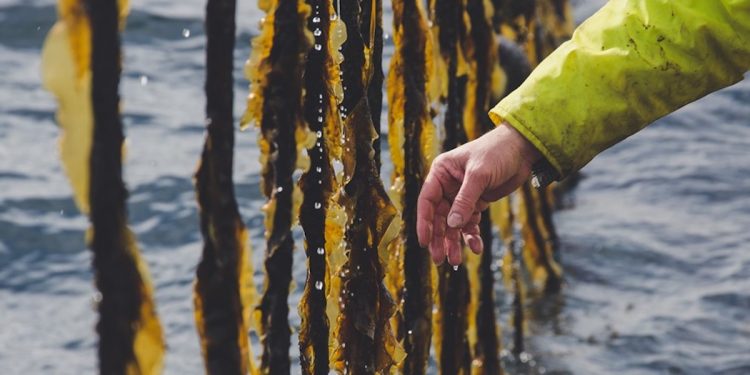Faroese seaweed farming company Ocean Rainforest has secured $1.5 million in funding, led by the World Wildlife Fund (WWF), which committed $850,000. The rest comes from a mix of Faroese backers and board members. The investment will help accelerate growth of offshore seaweed production for the benefit of people, communities and climate gains.
With more than ten years of experience in seeding, growing, harvesting and processing seaweed from open ocean conditions, Ocean Rainforest is internationally recognised as a key pioneer in developing this industry.
‘We’re excited to support this project because seaweed cultivation holds the potential to reduce these pressures and contribute to a more balanced relationship with nature,’ said WWF president and US CEO Carter Roberts, citing environmental pressure from rising global demand for food, fibre and fuel as a reason for the investment.

Seaweed cultivation requires no freshwater, arable land, fertilisers, or pesticides. Seaweed is extremely efficient at absorbing CO2 from the ocean and reducing ocean acidification. By absorbing CO2 and nutrients from the sea, seaweed farms create a cleaner water column while producing the highly nutritious biomass used in Ocean Rainforests’ products. The final products are in high demand in the world of cosmetics, fashion, plastic replacements, pharmaceuticals, alternative proteins, biofuels, fertilisers and animal feed.
The Faroe Islands’ deep, nutrient-rich, waters are well suited for growing seaweed, with a stable temperature of between 6°C and 11°C.
‘This investment by WWF and others will allow Ocean Rainforest to deploy new farms at scale, enabling the company to meet the growing demand for its products,’ said Ólavur Gregersen, CEO and project investor of Ocean Rainforest.
‘Most importantly, it is an affirmation of our sustainable approach to cultivating seaweed in our ocean waters, improving people’s wellbeing, and making a unique and positive contribution to our blue planet.’
Ocean Rainforest is currently licensed to operate next to a salmon farm run by Bakkafrost. However, the company is expanding its operation to the United States through its US-based subsidiary.
In June, Ocean Rainforest and Advanced Research Projects Agency-Energy signed an agreement to carry out the second phase of a pioneering seaweed cultivation project, known as MacroSystems, under which Ocean Rainforest will lead work in developing and testing new methods for the open ocean cultivation of giant kelp. Over the next three years, Ocean Rainforest will launch a three-year demonstration project in the California Bight.
‘Seaweed could make a big difference in addressing climate change,’ Ólavur Gregersen said.
‘By scaling up seaweed cultivation and moving the industry offshore, you have the chance to make a real sustainable impact. What’s exciting for me is that the more seaweed we produce, the better off our planet is. You can’t say that about many industries.’









